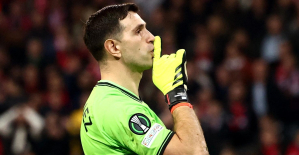Rechargeable lithium-ion batteries have taken an increasingly more natural place in the daily lives of people all over the world. They ensure that our smartphones, computers and electric cars work, and pulled out as a key factor on the road towards a green future in which fossil fuels can remain just fossil.
But for these batteries, as most norwegians will enjoy each and every day to work - so required to both cobalt and lithium. There are two minerals which are found in large quantities in some of the world's poorest countries.
15 workers suffocated in illegal mine in dr Congo Child labourIt is estimated that around 60 per cent of the earth's koboltressurser found in The democratic republic of the Congo, and the country mourns alone for around 40 per cent of the global exports.
A significant proportion of cobalt which is extracted in the country comes from privately owned and unregulated mines, where both children and adults working under deadly conditions - for luselønn - to dig for "the new gold".
People who live in extreme poverty working in confined gruveganger, often without any other tools than his own hands. Without basic safety equipment or training, graves, after, among other things the mineral cobalt.
Unicef reported in 2012 that as many as 40 000 children worked in the mines in the south of the country, without that it was specified how many of those who worked in the koboltindustrien.
And all the time there are minimal laws and regulations which require that large international companies to document how the cobalt they buy comes from, it is virtually impossible to say with certainty that the smartphone you have in your pocket, or electrical car which is parked in the garage, not in part is a result of child labor or the unworthy working conditions in the Congo.
PROVOSORISK: This photo from 2004 shows a man on the way into one of the provosoriske koboltgruvene in the Congo. Photo: Schalk van Zuydam / AP / NTB Scanpix Show more - A shameJust pulled the fresh winner of the Nobel peace prize, Denis Mukwege, the fram during his speech during the award ceremony in the Oslo city hall on Monday.
I come from one of earth's richest countries. Nevertheless, my people is one of the poorest in the world. The disquieting reality is that the abundance of natural resources in our country - gold, coltan, cobalt and other strategic minerals - is the underlying cause of war, extreme violence and extreme poverty, he said.
He pointed out that "we all" are happy in the nice cars, jewelry and gadgets.
- I even have a smartphone. These items contain minerals which are found in our country. Often recovered those of young children under inhumane conditions, victims of threats and sexual violence, said he, and came with the following invitation:
- When you run your electric car, use your smartphone or admiring your jewelry, imagine for a moment the human cost of the manufacture of these objects have. The least we as consumers can do is to insist that these products are produced in such a way that human dignity is safeguarded.
nobel peace prize winner: Denis Mukwege used Monday's speech in Oslo city hall to, among other things shed light on the situation in the home country of the Congo. Photo: Tobias Schwarz / AFP / NTB Scanpix Show moreHe believes that not only is voldsutøvere who are responsible for their crimes, but also all those who choose to look away.
- To close my eyes for this drama is the same as being an accomplice, " said Mukwege.
During a press conference Sunday, he referred to the situation as "a shame, and something we must not accept".
Took gripAfter Amnesty International and the African Resources Watch uncovered child labor and deadly conditions at several of the country's unregulated mines, has several of the world's largest manufacturers of electronics advocated for a change.
Among them were companies such as Apple, Samsung SDI, HP, and Sony that went along about a measure under the name of "Responsible Cobalt Initiative", with the promise to follow the Oecd's claim about gjenomsiktig trade and to work against child labour, according to the Washington Post.
Many are still to do too little.
PAUSE: Miners are pictured outside a koboltgruve in Tulwizembe in the Katanga province in Congo in 2015. Photo: Kenny Katombe / Reuters / NTB Scanpix Show more Sold on the open marketwhile the world's largest manufacturers of electric cars and smartphones say they want to use the "konfliktfri" cobalt, " says the meetings with the miners in the Congo is still a dark history.
When CNN earlier this year examined the conditions in the country's koboltindustri, they could document the extensive use of child labor at several mines (see the video at the top in this case).
The Norwegian electric vehicle revolution is in danger to be a failure of the LeaderCNN found that the cobalt which is mined at several of the mines, being sold on the open market - without any control of who has been involved in the recovery. The raw materials are then bought by international companies who export it out of the country for further refining.
Sky News has previously documented that children in the 8-years of age are working at such mines.
from There, the road is still long to the companies that use minerals in their products. Within the cobalt finds its way to your smartphone, have it passed by several joints which hampers the ability to document exactly where it was mined.
DISEASE: This photo from may 2016 shows a child and a woman who crushes the stones extracted from a koboltgruve in Lubumbashi, where mining operations should have led to pollution and disease. Photograph: Junior Kannah / AFP / NTB Scanpix Show more - People don't knowThe excuse does not buy Amnesty International.
- They must be able to know if the cobalt comes from the Congo, and what kind of mines in the Congo that it comes from. When we confronted the companies with this, answered many of the big players that it was too costly to figure this out, " says Beate Ekeløve-Slydal, political advisor at Amnesty International Norway, before she adds:
- It IS made was not some secretIf your Amnesty is able to track where this cobalt comes from, then there is no doubt that these multinational companies, with their vast resources, with ease could be found out of it, she believes.
Ekeløve-Slydal also believe it is worth to note that a part of elbilens appealing is the eco-friendly profile that comes with it.
Many who buy an electric car today makes it to contribute to something positive, and to be with the green shift. I think, however, that many of them do not know the situation in the Congo, " she says.
< p> She digs up minerals that will be in your smartphone - Difficult to have controlAmnesty is far from alone to follow the situation in the country. Also, the rainforest foundation norway has followed the development over time.
Madel Gunnarshaug Rosland, head of the Regskogfondets Africa team, says to Dagbladet that the environmental organization would greatly appreciate that this year's nobel prize went to Mukwege.
Congo is a vast country and characterised by very serious conflicts. We hope that the award that is shared by the congolese dr. Mukwege can help to ensure that the country comes higher in the Norwegian and international agenda, " she says.
Such was the militia-the mafia in the Congo mineralgruverShe points out many of the same problems Mukwege even pulled up in his nobeltale Monday.
- poor governance is a major problem in the DR Congo, which in turn leads to poor management of natural resources and severe conflicts. Control mechanisms are virtually non-existent. It also means that it is difficult to have control on what comes from legal and illegal concessions in the export market from logging, mining, and other extraction, " says Rosland.
In addition to the exploitation of poor people and child labour, also has several pointed out that koboltindustrien in the Congo can lead to avskogning in the country's major rainforests.
Rosland emphasizes that there currently exists little research on the effects of mining on the rainforest in the Congo, but says the following on a general basis:
- the mining industry involves major intervention in the nature. Not only from the mines, but also from the infrastructure - the roads taken to transport the minerals.

 Sydney: Assyrian bishop stabbed, conservative TikToker outspoken on Islam
Sydney: Assyrian bishop stabbed, conservative TikToker outspoken on Islam Torrential rains in Dubai: “The event is so intense that we cannot find analogues in our databases”
Torrential rains in Dubai: “The event is so intense that we cannot find analogues in our databases” Rishi Sunak wants a tobacco-free UK
Rishi Sunak wants a tobacco-free UK In Africa, the number of millionaires will boom over the next ten years
In Africa, the number of millionaires will boom over the next ten years WHO concerned about spread of H5N1 avian flu to new species, including humans
WHO concerned about spread of H5N1 avian flu to new species, including humans New generation mosquito nets prove much more effective against malaria
New generation mosquito nets prove much more effective against malaria Covid-19: everything you need to know about the new vaccination campaign which is starting
Covid-19: everything you need to know about the new vaccination campaign which is starting The best laptops of the moment boast artificial intelligence
The best laptops of the moment boast artificial intelligence For the Olympics, SNCF is developing an instant translation application
For the Olympics, SNCF is developing an instant translation application La Poste deploys mobile post office trucks in 5 rural departments
La Poste deploys mobile post office trucks in 5 rural departments Meta accelerates into generative artificial intelligence with Llama 3
Meta accelerates into generative artificial intelligence with Llama 3 In China, Apple forced to withdraw WhatsApp and Threads applications at the request of the authorities
In China, Apple forced to withdraw WhatsApp and Threads applications at the request of the authorities The main facade of the old Copenhagen Stock Exchange collapsed, two days after the fire started
The main facade of the old Copenhagen Stock Exchange collapsed, two days after the fire started Alain Delon decorated by Ukraine for his support in the conflict against Russia
Alain Delon decorated by Ukraine for his support in the conflict against Russia Who’s Who launches the first edition of its literary prize
Who’s Who launches the first edition of its literary prize Sylvain Amic appointed to the Musée d’Orsay to replace Christophe Leribault
Sylvain Amic appointed to the Musée d’Orsay to replace Christophe Leribault Skoda Kodiaq 2024: a 'beast' plug-in hybrid SUV
Skoda Kodiaq 2024: a 'beast' plug-in hybrid SUV Tesla launches a new Model Y with 600 km of autonomy at a "more accessible price"
Tesla launches a new Model Y with 600 km of autonomy at a "more accessible price" The 10 best-selling cars in March 2024 in Spain: sales fall due to Easter
The 10 best-selling cars in March 2024 in Spain: sales fall due to Easter A private jet company buys more than 100 flying cars
A private jet company buys more than 100 flying cars This is how housing prices have changed in Spain in the last decade
This is how housing prices have changed in Spain in the last decade The home mortgage firm drops 10% in January and interest soars to 3.46%
The home mortgage firm drops 10% in January and interest soars to 3.46% The jewel of the Rocío de Nagüeles urbanization: a dream villa in Marbella
The jewel of the Rocío de Nagüeles urbanization: a dream villa in Marbella Rental prices grow by 7.3% in February: where does it go up and where does it go down?
Rental prices grow by 7.3% in February: where does it go up and where does it go down? With the promise of a “real burst of authority”, Gabriel Attal provokes the ire of the opposition
With the promise of a “real burst of authority”, Gabriel Attal provokes the ire of the opposition Europeans: the schedule of debates to follow between now and June 9
Europeans: the schedule of debates to follow between now and June 9 Europeans: “In France, there is a left and there is a right,” assures Bellamy
Europeans: “In France, there is a left and there is a right,” assures Bellamy During the night of the economy, the right points out the budgetary flaws of the macronie
During the night of the economy, the right points out the budgetary flaws of the macronie These French cities that will boycott the World Cup in Qatar
These French cities that will boycott the World Cup in Qatar Europa League: “Trouble playing our football,” admits Benfica coach
Europa League: “Trouble playing our football,” admits Benfica coach Europa League Conference: “Martinez eats all your deaths”, Obraniak’s breakdown after the elimination of Lille
Europa League Conference: “Martinez eats all your deaths”, Obraniak’s breakdown after the elimination of Lille Premier League: “It’s a team that is transforming into the Champions League”, Casemiro returned to Real’s qualification
Premier League: “It’s a team that is transforming into the Champions League”, Casemiro returned to Real’s qualification Europa Conference League: the semi-final flies to Lille, which loses to the wire against Aston Villa
Europa Conference League: the semi-final flies to Lille, which loses to the wire against Aston Villa


















